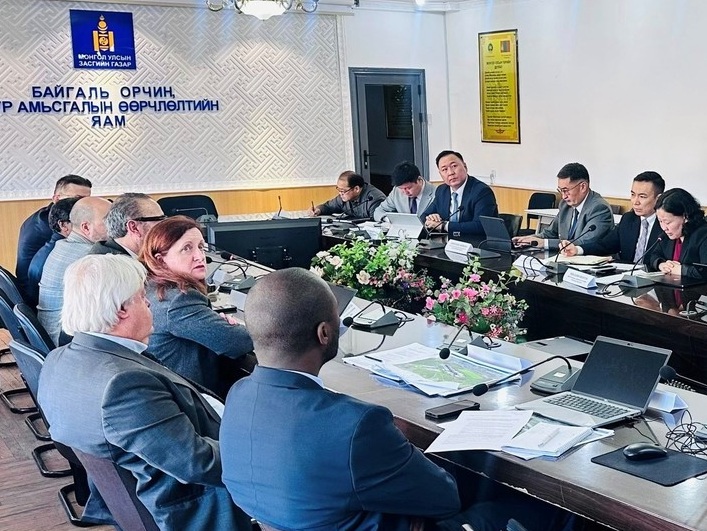Ulan Bator's contribution to environmental protection
The Mongolian government is expanding international collaborations for projects aimed at protecting its delicate ecosystem and combating climate change. A series of initiatives have been launched with the German government, including a census of the country's forest areas and a laboratory for detecting heavy metals in the atmosphere. In August 2026, Mongolia will host the UN conference on combating desertification.
Ulan Bator (AsiaNews) - Mongolia is seeking to agree on several international projects for the transition to ecological development capable of responding to the increasingly urgent challenges of our times.
In recent days, negotiations were held in Ulan Bator with representatives of the German federal government, in which members of the Mongolian Ministry of Environment and Climate Change were particularly involved. The delegations were led by Secretary of State Batbaar Šurenčuluun and several leaders from German ministries, banks, scientific institutes and agencies.
During the meeting, the importance of broadening and deepening relations and cooperation between the two countries was emphasised, confirming their shared commitment to environmental protection, which has already produced significant results in recent years.
It is necessary to expand the network of specially protected areas in Mongolia, implementing measures to combat destructive climate change and managing the Asian country's forests and natural resources in an increasingly effective manner, the benefits of which will have a knock-on effect across the entire continent, including Europe.
Šurenčuluun reiterated that environmental protection is a priority in cooperation projects between Mongolia and Germany, expressing his gratitude for the support given to the revision of legislation in this field and to many important development documents in various areas. The parties also agreed to expand private sector participation in the implementation of Mongolia's green development plan by 2030.
One of the most important projects is the multi-purpose inventory of forests throughout the country and support for the global partnership for “Extended Producer Responsibility”, which is of great importance in establishing the principles of sustainable production and consumption, with the delegations going into detail on these aspects in their work over the course of several days.
One example illustrated at the meeting is the work of the Central Laboratory for the Environment, opened at the National Meteorological Agency in Ulan Bator, which has proven capable of determining more than 70 types of heavy metals in the atmosphere, in water and soil in over 100 locations in the capital and more than 300 throughout the rest of the country, thanks to new analysis systems developed through international collaboration.
Also working in Mongolia at this time is the planning group of the secretariat of the UN Convention to Combat Desertification (UNCCD), with the mission of coordinating the documentation necessary to activate the agreement recently signed by the Ulan Bator government with the UNCCD in view of the conference being organised in the Mongolian capital, which will be held from 17 to 28 August 2026.
Internal logistics and the composition of delegations are expected to be specified, making the country an important reference point for international cooperation in the field of ecology.
Mongolia's openness to these increasingly intense forms of international collaboration is a sign of the country's desire to move beyond the contradictions and delays that have characterised the post-Soviet decades, which have seen periods of acute internal social conflict and a reluctance to collaborate with other countries at regional and international level.
The central position of the country of the heirs of the great medieval Eurasian empire could foster a genuine rebirth not only of Mongolia but of the entire Asian continent, as the Secretary of State reiterated in his meetings with the Germans and UN representatives.







.png)










